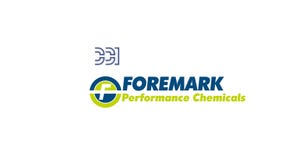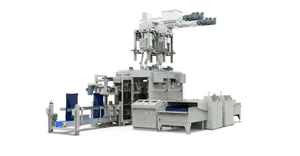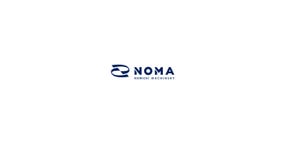January 19, 2012
The Wolfson Centre for Bulk Solids Handling Technology, part of the School of Engineering at the University of Greenwich, is running a program of short courses throughout 2012 designed to attract engineers from industry in the area of bulk solids handling.
The courses aim to provide delegates with the knowledge to identify bulk solids handling problems and to teach them the techniques to overcome them.
In the past, delegates from all over the world and from a variety of industries have participated, particularly pharmaceuticals, food processing, mining, ceramics, power generation, plastics, chemicals and recycling, to name a few. They are aimed at managers, skilled operatives, and maintenance crew, or anyone involved in the handling, processing and storage of powders and bulk solids, including manufacturers of such machinery.
The course content includes, among other topics, the basics of operation of powder and bulk solids handling equipment, understanding bulk materials behavior, causes and solutions to common problems, design and selection of plant components. Some courses now contain an optional practical session, as a result of delegate feedback on previous courses. In these, delegates are given the opportunity to experiment with various pieces of equipment, some of which are available nowhere else in the world.
Course fees include the course handbook with copies of the presentations, refreshments, and a course dinner after Day 1 (where the course is two days in length).
Some new courses are being introduced as well.
Guide on how to manage compliance to REACH (February 28)
£420 per delegate
REACH is a European Union regulation concerning the Registration, Evaluation, Authorisation and restriction of Chemicals. It came into force on June 1, 2007 and replaced a number of European Directives and Regulations with a single system.
REACH is applicable to all chemicals. The aim of the course is to help those who make, process, blend or formulate chemical powders to understand the legislation, know what their company should be doing to comply and identify their role within this.
Topics covered include
* What rules apply to importing materials into the EU and products made in the EU
* How do we make sure we can still buy or import all of our raw materials?
* What about our products? Will we have to register them? What is an article?
* What is exempted? What are partial exemptions?
* How are safety criteria or occupational safety and health limits being established?
* What is a Substance Data Sheet? What parts do I have to comply with?
* When does all this have to be done by?
* Where should I start?
The objective of the course is to ensure you are aware of your responsibilities and to help you prepare a plan of action for your workplace.
Segregation, Degradation and Caking (March 20)
£420 per delegate
Topics include:
* Maintaining or improving product quality
* Correct design of equipment to minimise segregation (de-mixing) effects
* Handling of materials to reduce particle breakage and dust generation
* Approaches to minimising caking of materials
* Techniques to make materials more resistant to loss of quality
Powder Characterization (March 21-22)
£680 per delegate
The course was designed to give delegates an overview of various methods of measuring the behavioural properties of powders. It is designed to include hands-on experience with as many of these methods as practical.
Topics covered
* Particle size measurement (manual and automated)
* Density (solid and bulk)
* Flow property measurements
* Moisture mechanics
* Segregation, degradation, and caking
* Explosability
* Pneumatic conveying properties
* Dustiness
For each technique covered the presenters will:
* Introduce relevance to real-world handling scenarios
* Show how technique works, demonstrate if appropriate
* Discuss relative accuracy, selectivity and relevance
The course has been designed either as a stand-alone two-day course, or to follow in more depth from the Segregation, Degradation and Caking one day course. The second day is a practical session in our laboratories, designed to allow the delegate the chance to test their own powders using different characterisation techniques, or to come along and learn something new, using a selection of our powders.
Delegates attending both the Segregation course on the 20th and the Characterisation course on the March 21-22 will receive a discounted fee of £1055
Storage and Discharge of Powders and Bulk Solids (April 24-25)
£680 per delegate
Topics include:
* Basics of hopper and silo function
* Dealing with potential problems
* Determination of hopper geometry
* Discharge aids and interfacing to feeders
* Feeder design
* Practical examples
Electrostatics in Powder Handling and Evaluation (half-day course, April 26, am)
£260 per delegate
This course discusses the causes and effect of electrostatic charge in bulk solids handling, and then the hazards caused to product quality control and risk assessment. Here principal charge measurement techniques are reviewed. By the measurements, prediction models and possible solutions are generally discussed.
o Influences of electrostatic charge on physical properties of powders
o Charge hazards in material handling processes
o Evaluation and measurement techniques
o Prediction and solutions
Dust Explosions – How to Demonstrate DSEAR/ATEX Compliance (half-day course, April 26, pm)
£260 per delegate
This course gives an introduction to the subject and the simple measures that can be taken to reduce the hazard of a dust explosion. It includes a brief overview of current legislation and the safety precautions required to demonstrate compliance and provide a safe working environment for employees.
Course content:
o UK dust explosion statistics
o What is an explosion?
o Standard explosion tests
o Generic vs actual test data
o Hazardous area zoning – 20, 21, & 22
o Fundamentals of DSEAR risk assessment
o Explosion prevention methods
o Explosion protection methods
Delegates attending all 3 courses on April 24–26 will receive a discounted fee of £1055
Pneumatic Conveying of Bulk Solids (May 29-31 and December 4-6; May 31 and December 6 are optional practical sessions in our laboratories)
£680 per delegate per two-day course (May 29–30 or December 4-5)
£1055 per delegate for the three-day course, including practical session.
Topics include:
* Components of pneumatic conveying systems
* Design techniques
* Diagnosis of operational problems
* Interfacing storage bins to conveying systems
* Operational problems and effects on system design
* All aspects of system selection and operation
* Correct design of systems for reliable operation.
In the practical session you will be able to:
* Test you own materials with the aid of our experienced technicians and researchers (If you do not have your own materials, we can provide some for you)
* Learn different methods of characterising materials
* Receive advice and recommendations on the results
Powder Containment (September 25)
£420 per delegate
This course looks at the selection and operation of equipment designed to reduce the risk of working with hazardous powders and is a ‘must’ for anyone working in such a situation.
Topics include:
* Perceptions of dust and consequences of exposure
* Key principles and equipment for air flow capture systems including H&SE Guidance HSG258
* Key principles and equipment for barrier systems
* The Workplace Exposure Limit, equipment performance expectations and performance verification
* Factors affecting performance such as ergonomics, worker behaviour and powder characteristics.
* H&SE guidance for workplace exposure limit setting
* Risk assessment approaches
Overview of Particulate Handling Technology (November 6-8; November 8 is an optional practical session)
£680 per delegate for November 6-7
£1055 per delegate for the three days, including practical session
Topics include:
* Vessel types and reliable flow
* Characterisation of materials
* Pneumatic and mechanical handling
* Feeder interfacing
* FIBCs
* Instrumentation and control of solids handling systems
In the practical session you will be able to:
* Test you own materials with the aid of our experienced technicians and researchers (If you do not have your own materials, we can provide some for you)
* Learn different methods of characterising materials
* Receive advice and recommendations on the results
Relevant to all courses:
In order to allow individual attention, numbers on the courses are limited. Early registration is recommended.
On-line booking, along with further information on these courses, is available from www.bulksolids.com. To contact the center, e-mail [email protected]. A discount of 5% is available for three delegates booking onto the same course from the same company at the same time.
In-company courses can be arranged to cater for larger numbers or a variation of topics. Please call 020 8331 8646 for details.
You May Also Like


